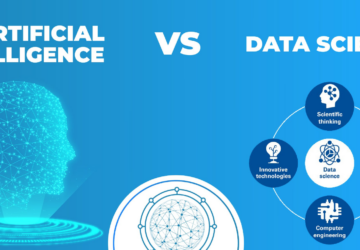Nonprofit sectors are quite tricky for marketers. Social impacts always remain the main cause behind any marketing plan in this sector. Nonprofit organizations primarily focus on serving a mission rather than generating profits. So, effective marketing is essential for achieving their goals. In this blog, we will explore the significance of marketing for nonprofit organizations. Simultaneously, we will discuss the key strategies for driving social impact through marketing.
The Role of Marketing in Nonprofits
Nonprofit organizations are diverse. It ranges from charities and foundations to social enterprises. Irrespective of their objectives, marketing is instrumental for their success. Here are several key roles marketing plays in the nonprofit sector:
- Raising Awareness
One of the primary goals of nonprofit marketing is to increase awareness about the cause or issue the organization addresses. This can happen through –
- publicizing environmental conservation efforts
- promoting health initiatives
- advocating for social justice.
Effective marketing strategies help nonprofits reach a wider audience. Consider taking marketing assignment help from a reliable site like Assignmenthelp.us to know about such strategies in detail.
- Fundraising
Nonprofit organizations rely heavily on donations and grants. Marketing plays an important role in attracting donors and supporters. It helps organizations communicate the impact of their programs and demonstrate why their cause is worth supporting. This often involves storytelling and creating emotional connections with potential donors. You can learn about these marketing nuances better by hiring an expert from online sites like Assignmenthelp.us.
- Community Engagement
Building a strong community of supporters and volunteers is vital for nonprofit success. Marketing efforts can help nonprofits engage with their communities, creating a sense of belonging and shared purpose. Engaged communities are more likely to support the organization and champion its cause.
Strategies for Effective Nonprofit Marketing
To promote causes and create social impact, nonprofits can adopt a range of marketing strategies and best practices. Here are some key strategies:
- Tell Compelling Stories
Storytelling is a powerful tool in nonprofit marketing. Share real stories of the people or communities impacted by your organization’s work. Use narratives that resonate emotionally with your audience and highlight the positive change your organization brings about.
- Leverage Digital Marketing
In today’s digital age, nonprofits should utilize various online channels like –
- Social media
- Email marketing
- Search engine optimization
These mediums help to reach a broad audience. These channels are cost-effective and help to engage with supporters around the world.
- Segment and Personalize Communications
Tailor your marketing messages to specific donor segments. Donors have different motivations and interests, and personalized communication can increase engagement and donations.
- Collaborate and Partner
Form partnerships with other organizations, influencers, or businesses that align with your mission. Collaborative campaigns can amplify your reach and impact.
- Measure and Communicate the Impact
Show transparency by measuring and sharing the impact of your programs. Donors and supporters want to see that their contributions make a difference. Use data and testimonials to demonstrate the change your organization creates.
- Advocacy and Grassroots Mobilization
Encourage supporters to become advocates for your cause. Provide tools and resources to help them take action, whether contacting legislators, organizing events, or spreading the word.
- Leverage Events and Campaigns
Organize events, campaigns, or awareness weeks that focus on specific aspects of your cause. These can create spikes in engagement and media attention.
- Donor Recognition
Show appreciation for your donors and supporters. Recognizing their contributions, both big and small, fosters a sense of belonging and encourages ongoing support.
Challenges in Nonprofit Marketing
Nonprofit marketing is not without its challenges. However, creative approaches and a commitment to the cause can help address these challenges.
- Limited Budgets
Nonprofits often operate with limited resources. To overcome this challenge, they can leverage the power of volunteers, in-kind donations, and low-cost digital marketing strategies.
- Competition for Attention
Nonprofit causes often compete for public attention. Craft unique messages and campaigns that stand out and create a clear value proposition to differentiate your cause.
- Donor Trust
Maintaining donor trust is crucial. Nonprofits must be transparent about their financials, show how donations are used, and share their impact. Regular updates and reporting can help build and maintain trust.
- Donor Retention
Acquiring new donors is important, but retaining existing donors is equally crucial. Building long-term relationships with donors requires ongoing engagement, communication, and appreciation.
- Adapting to Technological Changes
Technology evolves rapidly. Nonprofits must stay up to date with digital marketing trends and tools to remain effective in their outreach.
Marketing in the nonprofit sector is an essential element for promoting causes and driving social impact. It enables organizations to raise awareness and attract funding, thus bringing a positive change. By embracing marketing, we can engage the community and maximize the reach and effectiveness of the campaigns.









